| International GLOBAL CITIZEN’S AWARD | |||||||||||||||||||||||||||||||||
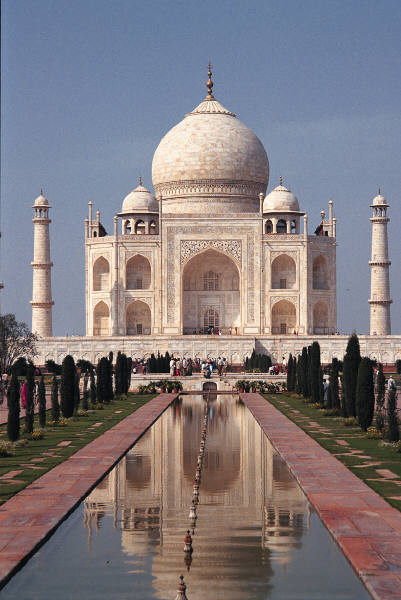  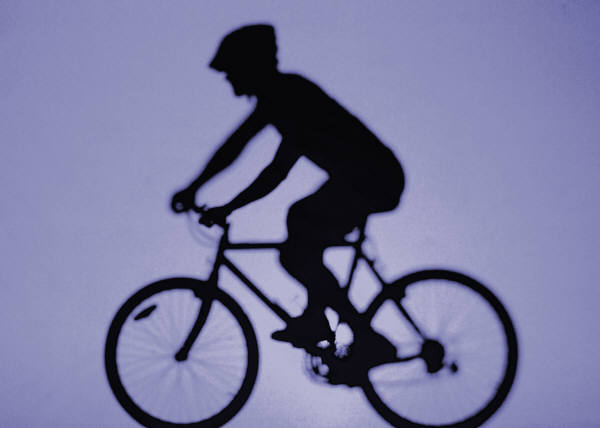     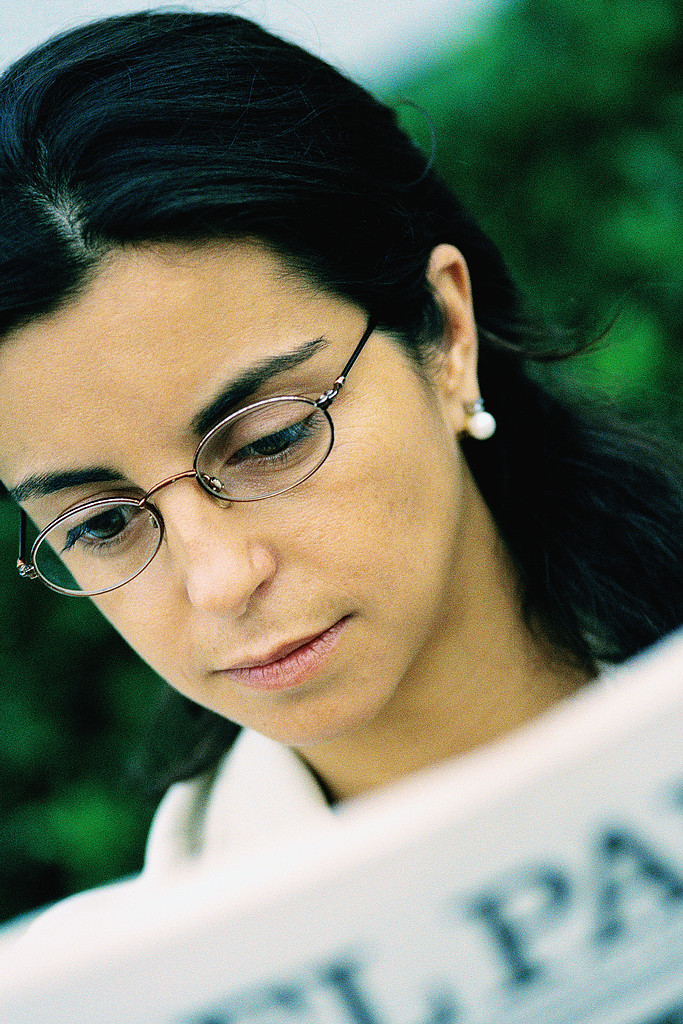 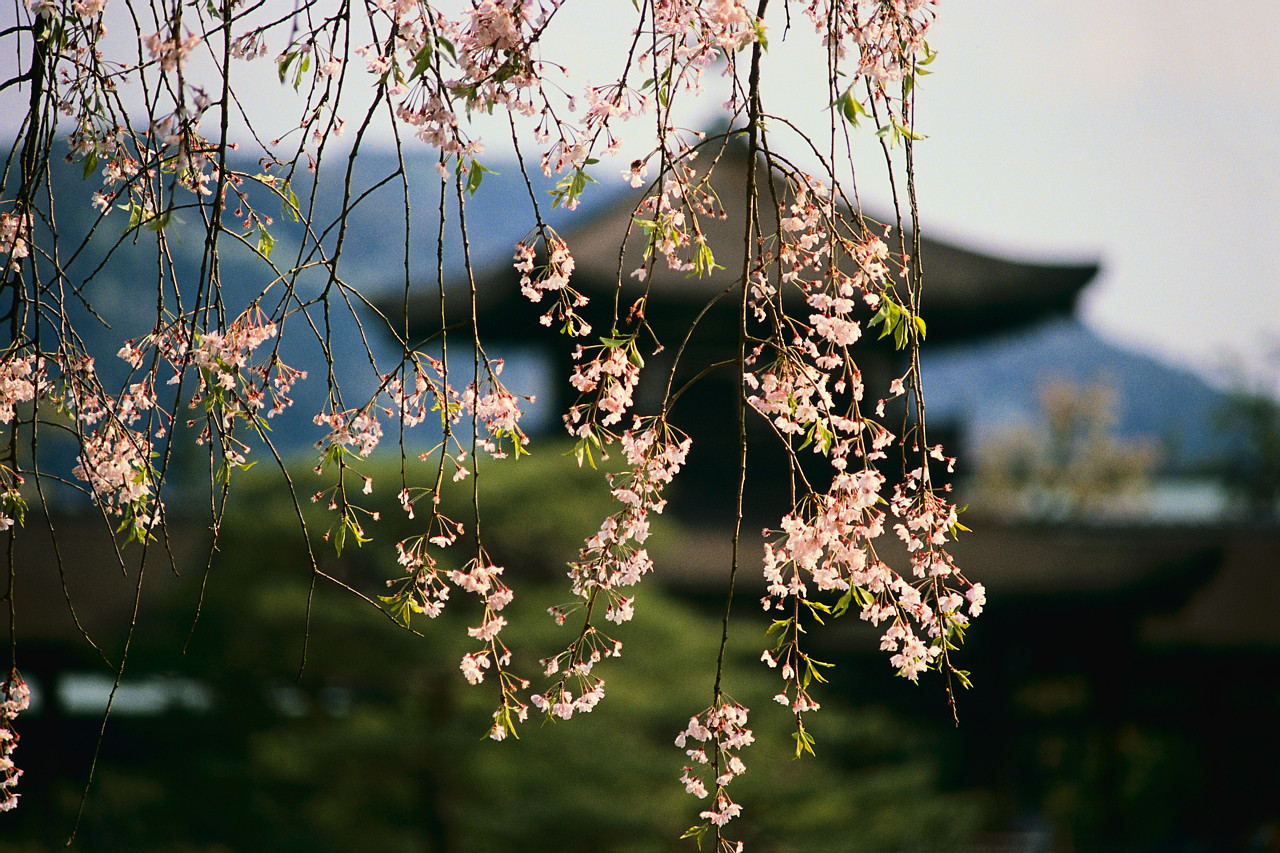 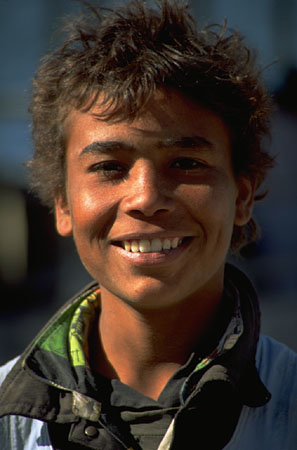   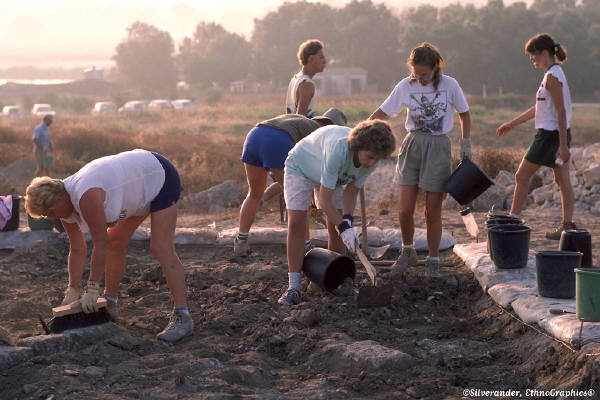 |
|||||||||||||||||||||||||||||||||
|
August
2022 October
2021 2020 - 2022 IGCA activities, like everything else iin schools, are disrupted by the Covid pandemic. May
2020 October
2019 September
2019 June 2019 Laura Crowley of Oakham School, UK becomes the first IGCA gold level recipient in the UK. Laura comments that “The IGCA has really pushed me to do things I otherwise wouldn’t have done and I like how there has been the freedom for me to look into areas that particularly interested me.” As part of her IGCA programme Laura worked in a local primary classroom as a helper, spent time with 10-11 year old children discussing what it means to be a global citizen, found out about Iceland’s melting glaciers, the crisis in the Lake Chad Basin (the “forgotten crisis”) and Amazon’s distribution and employment practices, and visited France as an exchange student. May 2018 March 2018 September 2017 Academia
Británica Cuscatleca, El Salvador reports
its largest ever cohort of IGCA participants – over 60 –
since introducing the programme in the pilot stage in 2007. April 2017 October 2016 The English School of Kyrenia, Cyprus joins the programme - the first school in Cyprus to do so. A presentation on the IGCA is given as part of an international colloquium on global citizenship organised by Dr Edda Sant Obiols and Dr Christopher Hanley at Manchester Metropolitan University, UK. June 2016 Academia Británica Cuscatleca, El Salvador, one of the Award’s pilot schools, makes its first award at gold level to Roberta Bará. Oakham School, UK makes 11 bronze awards in its second year of the programme. Arabella Cox, who completed the bronze award in 2015, receives the school’s first silver award. The total number of awards made in the programme has now reached well over 2600 in 15 countries: China, Egypt, El Salvador, Hungary, Hong Kong (China), India, Indonesia, Jordan, Kuwait, Qatar, Singapore, Spain, Switzerland, UAE, UK and USA. May
2016 March
2016 March
2016 January
2016
January
2016 October 2015 The IGCA
is discussed in a chapter in the 2nd edition of The Sage Handbook of
Research in International Education, edited by Mary Hayden, Jack Levy
and Jeff Thompson, published this month. September/October 2015: IGCA visit to India IGCA founder Boyd Roberts visited India at the invitation of The Association of International Schools of India (TAISI) and Pathways World School (PWS), Aravali. PWS is one of the principal IGCA centres in the world, with the largest number of participants. Dr Pathma Naidu, who oversees the IGCA at PWS and is an Award Ambassador, coordinated the visit. While
in India Boyd gave a keynote talk at the TAISI leadership conference
in Mumbai, during which he introduced the IGCA. He also joined Pathma
to present a breakaway session describing the Award in greater detail. At Singapore International School, Mumbai Above:
Front row, from left : Riad Rojoa (Upper Division Head) Sumita Ohri (Award coordinator, SIS), Kaisar Dopaishi (Principal), Dr Sarvesh Naidu (Executive Director, PWS, Aravali), Boyd Roberts, Sharonee Mullick (Head of School, SIS), Shankini Saha (SIS alumna; gold award recipient 2013), Dr Pathma Naidu (Award ambassador, and award overseer PWS), Abhimanyu Dasgupta (Primary Division Head)), Miukesh Gupta (Head of Pastoral Care), Tripti Joshi (Senior Second Langauge Teacher) Below:
from left, Sharonee Mullick, Sumita Gulati Ohri, Boyd Roberts Boyd then visited PWS for an extensive series of meetings with Director, Prabhat Jain, Dr Sarvesh Naidu (Executive Director) and Dr Pathma Naidu; with students, including many Award recipients and participants; with Award coordinators Dr Hemant Singh and Geetanjali Dhull; coordinator of the PWS Global Citizen’s Award (for primary school students) Anahat Kukreja; Head of Senior School, Arvind Chalasani; Head of Middle School, Sumit Dargan, and many other colleagues.
At Pathways World School, Aravali. From left: Dr Sarvesh Naidu, Boyd Roberts, Dr Pathma Naidu, Dr Hemant Singh, Anahat Kukreja, Geetanjali Dhull.
Meeting Pathways World School Middle School Award participants at silver and gold levels. Pathma and Boyd presented a day-long workshop for prospective Award schools in India – the first such extensive workshop held since the Award was founded. Boyd was also keynote speaker for the opening session of the Pathways World School Model United Nations. IGCA workshop at PWS, Aravali During the visit, Boyd visited some of the local village schools supported by PWS as part of its service programme (which forms part of the IGCA for participating students). A special IGCA assembly was held at PWS during which cheques were presented to local charities nominated by IGCA recipients, (A charity donation is made as part of the award for each IGCA recipient).
Above: IGCA /peace assembly at PWS, Aravali Below: Some of the gold award aspirants and recipients at PWS, IGCA assembly
There was considerable interest among schools in India in introducing the IGCA. This was the first overseas travel undertaken specifically for the IGCA. September 2015: The Marist Schools, Reading, UK becomes an Award centre. Dayib Guray Secondary School, Somalia, also joins the Award – the first school in the country to do so.
June 2015: Discovery College, Hong Kong, China makes awards at all three levels, including the centre's second gold award, to Margaux Gjurasic. Margaux gave a presentation to an award committee, at the conclusion of her participaition in the programme, and was then given her gold award.
From the left: Andy Kai Fong (Secondary Principal), Cheryl Osborne (IGC Award coordinator), Margaux, Dr Maggie Hinch (parent rep on the board and Sustainability Consultant), Peter Muir (CAS Coordinator) May/June 2015: Among the awards made towards the end of the Northern hemisphere academic year are: Singapore International School, Mumbai, India - a total of 41 awards, 24 at bronze level, 13 at silver level, and gold awards to Ashish Sangai, Sahil Rai, Shrishti Dugar and Viraj Rai. Academia Británica Cuscatelca, El Salvador – which has made awards every year of the programme from the pilot stage in 2008 – to 12 students at bronze level and 2 at silver level International School of London, UK, another original pilot school – awards at bronze and silver level. Pathways World School, Aravali, India – 198 at bronze level and 80 at silver level plus a further 5 awards at gold level to Nupur Balain, Kshitij Verma, Awinita Barpujari, Angad Sodhi and Pratyush Swarup.
Grade 8 bronze award recipients at Pathways World School
Grade 8 silver award recipients at Pathways World School April 2015: Among awards made this month are 10 at bronze level at Amman Baccalaureate School, Jordan, one of the original pilot schools for the programme.
Oakham School, UK makes its first awards. February 2015: Dr Pathma Naidu of Pathways World School, Aravali, India is designated as Award Ambassador – a new role to support development of the programme in India. December 2014: Nesbru videregående skole, Norway becomes an Award centre – the first in the country.Australian
International School, Balikpapan, Indonesia, makes its first
IGC Awards to 16 students Kanika
Agarwal, Deus Bajaj, Sasha Gopalakrishnan, Richa Manjari, Sharvani Shakambari
and Pancham Yadav receive gold awards at Pathways
World School, Aravali, India. June 2014: Singapore International School, Mumbai, India makes its second batch of gold awards to 5 students, out of a total of 60 awards. The gold award recipients are Yash Master, Ketki Chinoy, Shanav Mehta, Abhishek Pillai and Ashay Gupta. Pathways World School, Aravali, India makes a total of 151 awards, including 137 at bronze, and 6 at silver levels, and its first gold awards to 8 recipients: Ashita Bhatnagar, Ayush Kejriwal, Jasmine Kaur, Megha Agrawal, Parvesh Chainani, Shivam Agrawal, Sonali Bansal and Subhashree Rath. Pathways has also introduced a Global Citizen’s Award for its primary students, devised by Pathma Naidu, to lead in to the IGC Award. Discovery College, Hong Kong, China also makes its first gold award to Kathy Lau.
Left to right: Over 2000 young people have now received the IGC Award since its inception. May - June 2014: A consultation with centres results in a modification of entry requirements for the silver level of the Award. This permits older students or students joining schools to progress more quickly to the silver award. May 2014: The British School of Lomé, Togo joins the programme. April 2014: Oakham School, UK joins the programme.
IGC Award participants at Oakham School planning their activities. Spring 2014: An article including the IGC Award appears in International School magazine.
Participants at Collège Champittet, Switzerland with their posters explaining global citizenship to other students November 2013: Longfield Academy of Sport, Darlington, UK becomes a centre. September 2013: The Balikpapan campus of the Australian School of Indonesia joins the programme - sister school of another centre - the Jakarta campus of the Australian School of Indonesia. May/June
2013:
Among this year’s awards are 195 bronze awards to participants
at the Dubai British School, and 65 bronze awards at
Cardinal Newman High School – both centres making
awards for the first time. December 2012: Dubai British School, United Arab Emirates starts the Award – the first centre in the UAE to do so. November
2012: The central Award document Information for Centres
appears in Spanish. This was translated by Lissett Castro of
Academia Británica Cuscatleca, El Salvador, and arranged
by Judith Shorrocks. October
2012: Ysgol Emrys ap Iwan, Abergele,
Wales, UK becomes the first school in Wales to offer the IGC Award. September 2012: International Community School, Addis Ababa, Ethiopia joins the programme. This brings to 19 the total number of countries in which the award has been introduced. The IGC
Award in action – based on case studies from nine participating
schools – is produced. Contact info@globalcitizensaward.org
or click The
IGC Award in action Sept 2012 for a copy. August 2012: Jakarta international School, Indonesia; Pathways World School Aravali, India and Cardinal Newman High School, Bellshill, Scotland, UK join the programme. June 2012: Well over 350 participants received the IGC Award at bronze level, and a further 20 at silver level – another record. This brings the total number of recipients to over 1200 since the Award started. This year's Awards included the first in Egypt and Switzerland. March 2012: St Andrew’s School, The Bahamas joins the programme – and is the first centre in the country to offer the Award. February 2012: Part of the “Award” received by recipients is a charity donation made in their name to a charity of their choice. These donations may be made through the Award to one of our nominated charities, or paid locally. To date
the following donations have been made to the Award charities: January 2012: A'Takamul International School, Kuwait begins the programme in its primary school and will be adjusting the programme as appropriate to suit the age group of students. December 2011: Discovery College, Hong Kong joins the programme, overseen by Peter Muir, who introduced the IGC Award at the Bali International School. Maadi British International School also begins the Award – the first school in Egypt to do so. October 2011: Collège Champittet becomes the first school in Switzerland to join the programme, incorporating some elements of the Award in its regular curriculum for year 10 students. It found out about the programme from its sister school, Budapest International School. June 2011: Over 340 students receive the Award at bronze or silver level at the end of academic year 2010-2011. These include the first awards in Hong Kong and India. May 2011: Christ the King Sixth Form College, UK joins the programme February 2011: Australian International School, Jakarta, Indonesia becomes the second school in Indonesia to begin the programme. AIS heard about the programme from a presentation by IGC Award participants from Bali International School at the GINDO (Global Issues Network Indonesia) conference. November 2011: Award director Boyd Roberts (right) met with Rachel Tang (left) and Patrick Wong (middle)at the Singapore International School, Hong Kong, to discuss their implementation of the programme. October 2010: Two new centres in the UK begin the programme:
September 2010: New centres joining the programme for 2010-11 are
June/July 2010: The Award continues to grow, and 275 participants received the award in 2009-10. Of these, 45 participants at Sotogrande International School, Spain received silver awards, and the remainder received awards at bronze level. November 2009: Dulwich College, Shanghai, China introduces the Award, coordinated by Andrew Corney, who previously introduced the Award at The English School, Kuwait. September 2009: New centres begin the Award in Vietnam (International School Ho Chi Minh City, City College Campus) and Indonesia (Bali International School). June/July
2009: Over 160 participants in 9 countries receive bronze
level awards. In addition, the first silver awards are made to 5 recipients
in Kuwait and the USA.
October/November 2008: Presentations on the IGC Award are made at IB Conferences in Marrakesh (Morocco), Beijing (China), and at the global citizenship summit in Bali (Indonesia). Visits are made to Award and prospective Award schools, in Bali and Hong Kong. September
2008: 16 centres in 12 countries are offering the IGC Award.
Arrangements for the silver level of the IGC Award are finalised
by the director and centres. Recipients of the bronze level award who
wish to do so begin the new silver level programme. July 2008: LifeHub, Singapore – the 16th centre, and the first which is not a school – begins the IGC Award. May - July 2008: Over
150 participants receive the bronze level International Global Citizen’s
Award – the first recipients in the world.
April 2008: Presentations about the IGC Award were given to teachers from schools in East Asia, in Beijing, China as part of the Global Issues Network conference held at the Western Academy of Beijing, 4-6 April. British International School, Budapest becomes the 15th pilot school, and will be starting the programme in August 2008. March 2008: PILOT SCHOOL PROGRESS REPORTS Here is a selection of reports from some of the Award pilot schools. IGC Award participants at St Timothy’s School, USA are drawn from the sophomore class. Several early brainstorming meetings took place, after which the girls were charged with identifying their own individual pilot projects to meet the criteria of the IGC Award program. Because St. Timothy’s offers a number of student clubs with similar agendas as the IGC (i.e., Social Services, Challenge 20/20, Environmental Awareness Club, Duke of Edinburgh program, etc.) and since the School’s IB curriculum is very much in keeping with the mission of the IGC, some programs/activities already existed from which the students could dovetail their own activities. Some of these included: campus-wide recycling efforts and fundraising for programs such as Save Darfur and Pennies for Peace. In February 2008, the IGC participants presented a compelling assembly to the entire school community, in which each girl shared a Power Point presentation on one of the identified “Hot Zones” around the world. In addition, the girls passed out juice boxes, each of which was labelled with a little-known “fact” relating to these war zones and areas of conflict. The students also distributed order forms for t-shirts and bracelet sales, proceeds from which were earmarked for one of the above-mentioned causes. Later this spring the IGC Award participants will help to promote and facilitate a school-wide fundraiser known as “Bread for Itipini.” This is a program spearheaded by the Diocese of Maryland to raise awareness and money for a small, impoverished community in South Africa. Leslie
Lichtenberg At Sha Tin College, Hong Kong, China, the IGC Award participants are members of the school’s Environment Action Group which is working to make the school a more sustainable place. Participants are working on a number of areas including making changes to the school canteen, establishing a roof garden, reducing the use of electricity and plastic water bottles in the school, and selling Fair Trade products. At Park House English School, Qatar, IGC Award participants organised a Fair Trade fortnight – the first such event in the country.
Six IB students at Broadgreen High School, Liverpool, UK are participating in the pilot scheme for the International Global Citizenship Award. Their activities have included: 1) Understanding other Culture and Outlooks a) Model United Nations General Assembly in Liverpool Town Hall November 2007. Over 200 sixth form students took part in this event. b) European Studies Programme. Students have been involved in this Irish initiative with Partner schools in France, Ireland and Poland. They have exchanged personal profiles and will send an information presentation about Liverpool, European Capital of Culture 2008 with each student being responsible for a different aspect of the year. c) Visit to India. Some students researched Indian culture in preparation for a visit to India in February 2008. d) Visit to Auschwitz and attendance at the National Holocaust Memorial Day Ceremony 27th January 2008 with others from the Liverpool Schools’ Parliament 2) Personal
Global Footprint – Environmental and Ethical Responsibility The Model UN Assembly had a working group on Sustainable Energy so delegates have a report on that for the School Council with reference to the School’s use of energy. The European Studies Programme has led to research on the environmental measures the UK has taken and by the European Parliament. Exchanges on this are part of the Partner Schools activities. An exchange with a GCA partner school in China has not yet taken place. Students log their personal views on the results obtained. 3) Influence
and Involvement with others. Martina Hedges IGC Award participants at Amman Baccalaureate School are engaged in lots of activities as part of the school's regular activities programme. These all form part of their requirements for the IGC Award - finding out about other cultures and outlooks (Model UN), or working with others.
Mentally
Challenged Model United
Nations (MUN) & Human Rights
Rehabilitation
of the virtually impaired CAS Committee
Abdel Razzaq Najjar September
2007 July
2007 “Travel
to CO2xford” : Stefano Zagato (Italy), Dai Ibuki (Japan) and
Gabriela-Maria Reichelt (Austria). IGC Award director Boyd Roberts was invited to talk about the Award to participants at the Global Connections 2007 seminar at Hotchkiss School, Connecticut, USA, attended by school heads and other senior educators from five continents. Subsequently, he also gave a presentation about the Award to participants from the USA, Canada and the Caribbean at the International Baccalaureate North America conference in Chicago. Considerable interest was shown at both conferences by schools wishing to introduce the Award. July
2007
After months
of preparation, the first students in the world to undertake activities
as part of the IGC Award programme are shown here in Oxford. Students
at the Education
aBc
summer course are taking part in a specially devised "introductory
version" of the Award during their stay. They are undertaking short
activities under each of the sections of the Award ... and are the first
students in the world to do so! The first group of 15 students come
from seven countries.
April
2007 February 2007 Meeting
on the IGC Award with representatives of the International Baccalaureate
Organisation and the United World Colleges, Cardiff, Wales
International
School of London launches the IGC Award at its International Show.
[above] Cathy Souob (Head of IB Diploma College/IB Coordinator, centre) and teachers from the Amman Baccalaureate School discuss the Award. [below] Samia Al Farra (second from right), with IGC Award coordinator at ABS Abdel Razzaq Najjar (far right), and colleagues from Amman schools after the meeting about the Award.
|
||||||||||||||||||||||||||||||||
|
|||||||||||||||||||||||||||||||||
The
International Global Citizen’s Award E: info@globalcitizensaward.org |
|||||||||||||||||||||||||||||||||


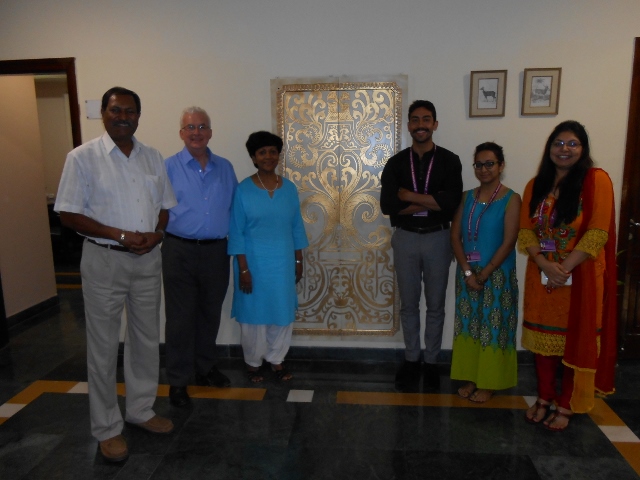
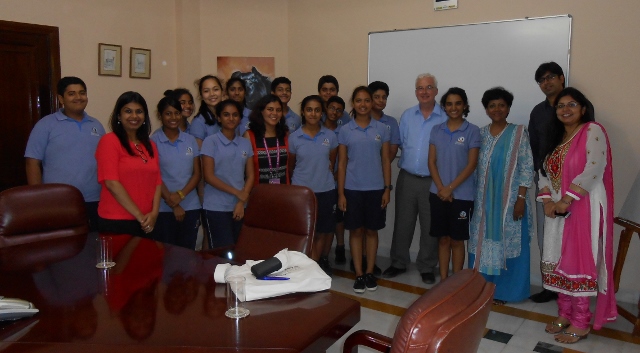
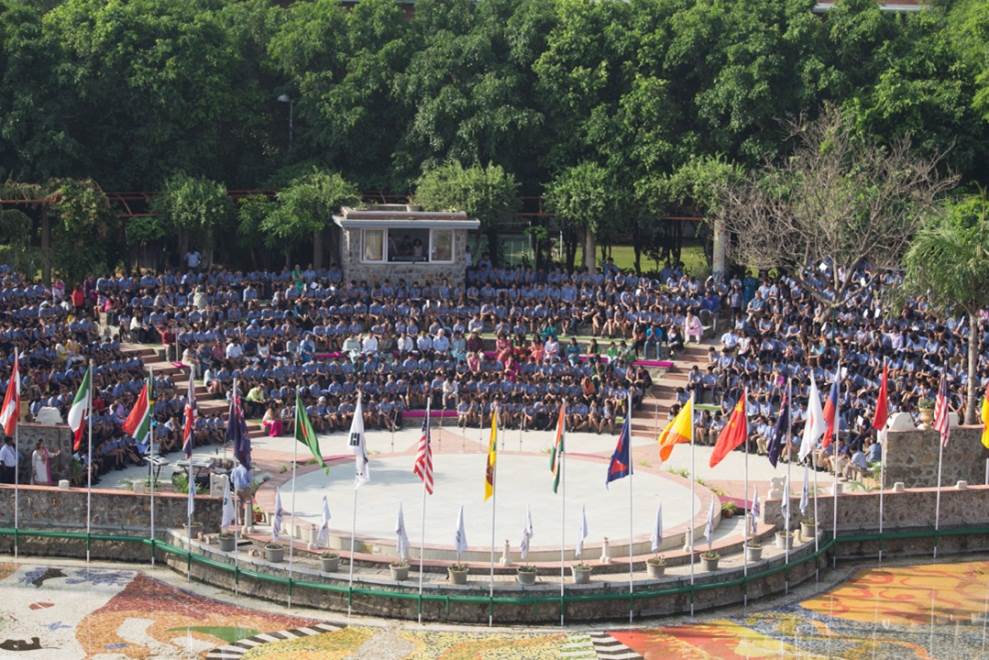
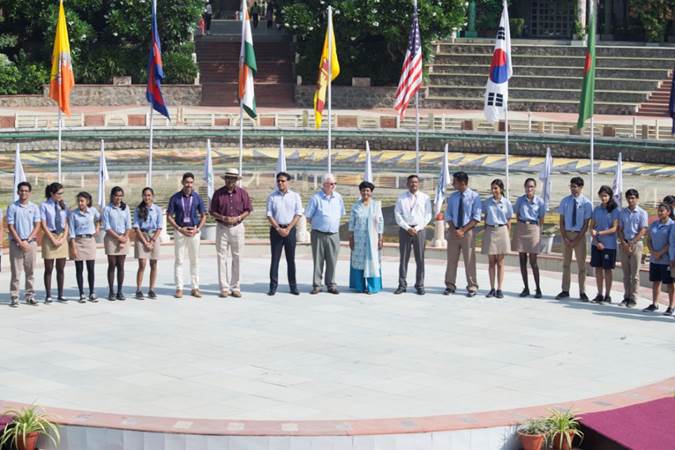
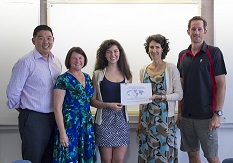
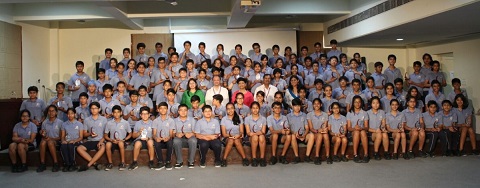
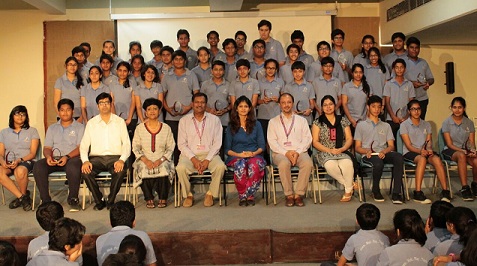
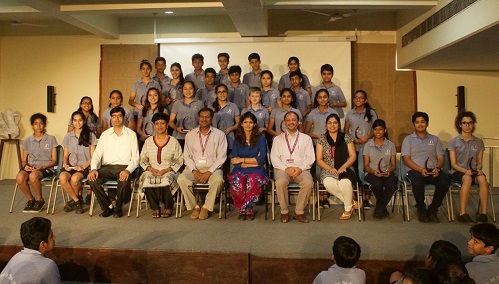
.jpg)
.jpg)
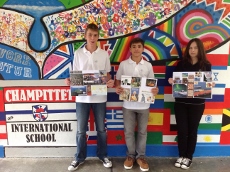
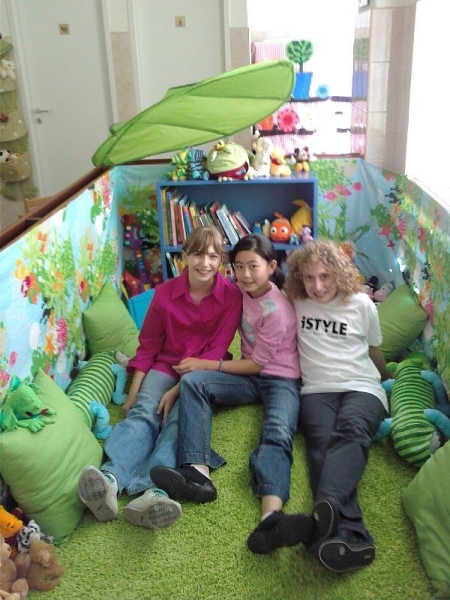
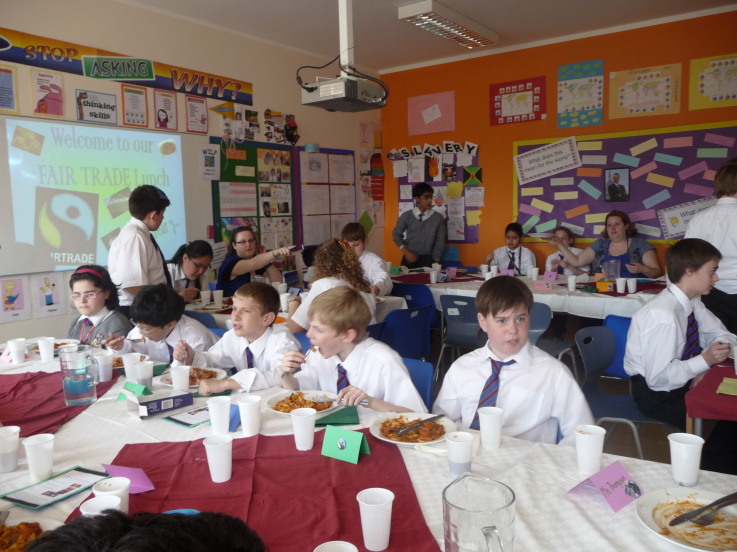
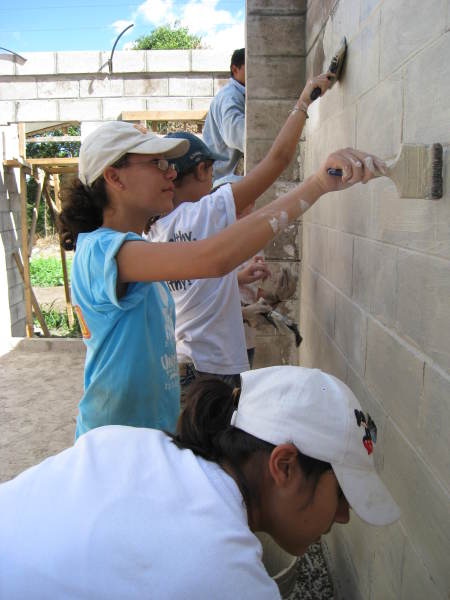

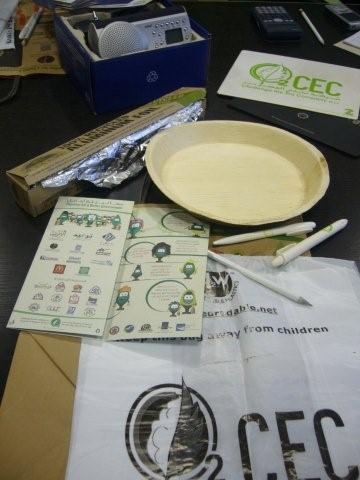
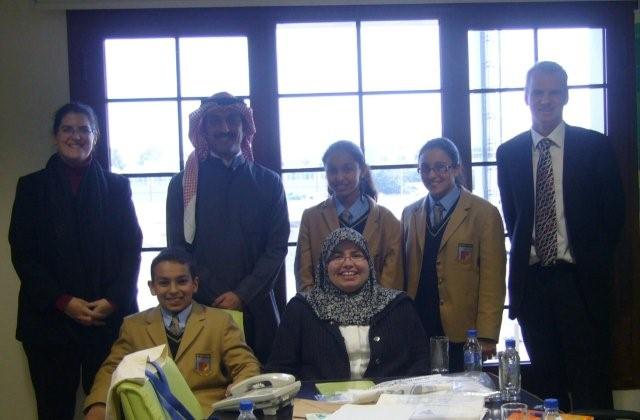
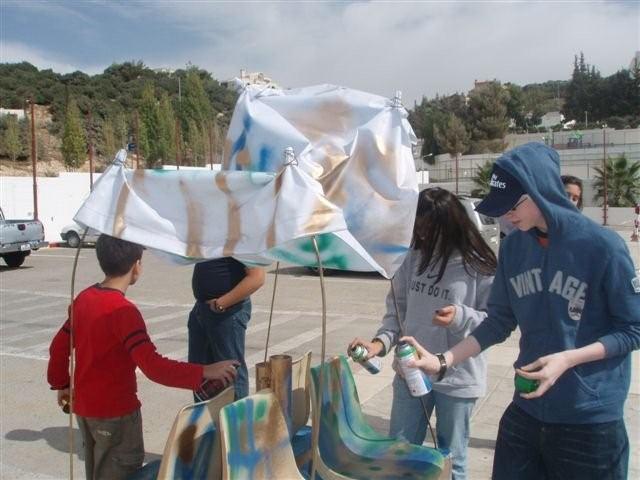 Orphans
& Outreach & less Fortunate
Orphans
& Outreach & less Fortunate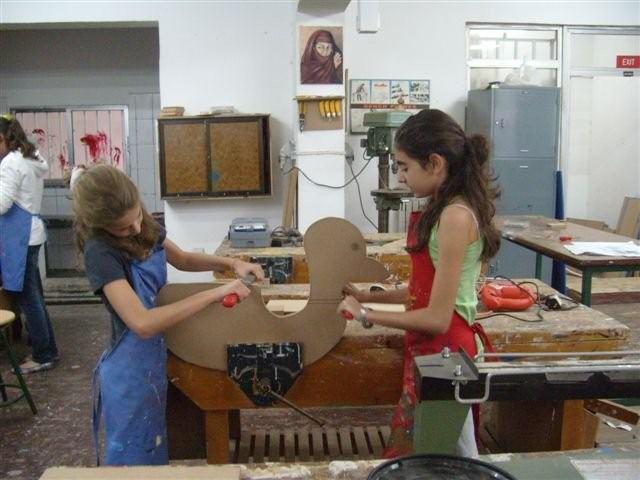 Manufacturing
Materials for Disabled
Manufacturing
Materials for Disabled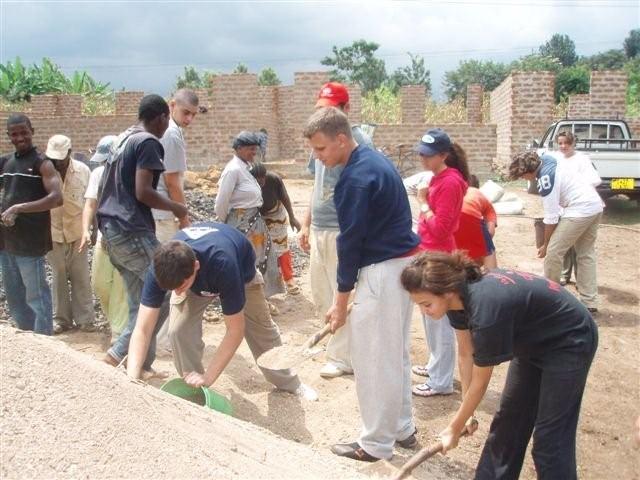 Tanzania
Trip
Tanzania
Trip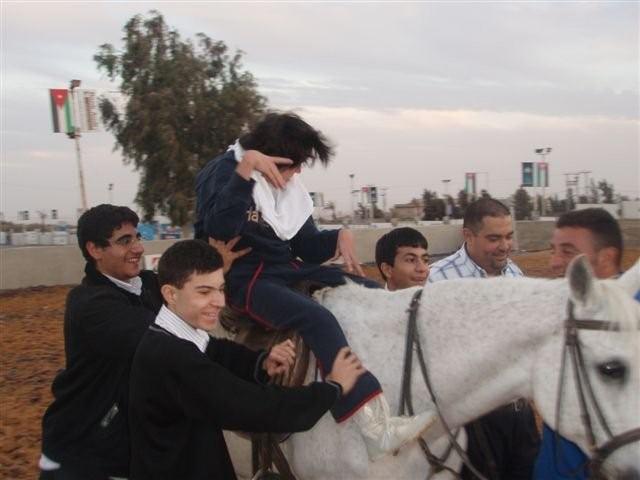 Riding
for the Disabled
Riding
for the Disabled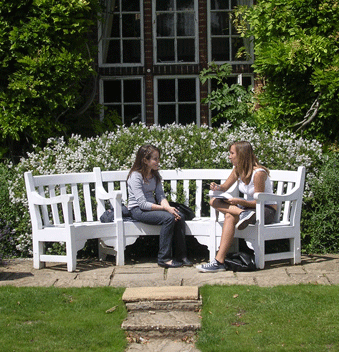
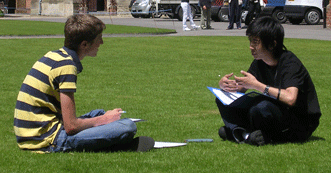 Here
they are conducting prepared structured "face to face" interviews
as part of "Understanding other cultures and outlooks".
Here
they are conducting prepared structured "face to face" interviews
as part of "Understanding other cultures and outlooks".